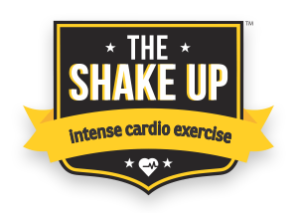Life these days is so busy that it can be difficult to spend enough time and energy looking after what we put into our bodies. However, without good nutrition, your body – and mind! – won’t be operating at peak efficiency.
Get a great start to your day
If you can only make one change to your diet, we suggest that you make it to your breakfast. Many of us skip breakfast, or eat cereal or toast that quickly transform into sugars and then into fat in our bodies.
A great start to the day is an omelette. If your ingredients are prepared in advance, they’re quite fast and easy to make, so that it doesn’t take much longer to make than toast would. See our fantastic 3-minute omelette recipe for a quick, easy option that won’t slow you down in the morning, but will give your day a great start.
If you’re not a big fan of omelettes, or you want to change it up a bit, a chia breakfast pudding is a high-protein option – and it’s best when prepared the night before, leaving you extra time to get through your morning routine.
Plan your meals for the day
The optimal meal organisation for most people is six small meals each day. However, this can be difficult for many of us to work into a busy schedule: four small meals a day is a good starting point. Where possible, plan your days around your meals, rather than the other way around. It might seem strange to structure the day like this, but think of it like a long car trip – you plan it based around stops to refuel, because without fuel for your car, you can’t complete the trip. Similarly, planning your day around your meals ensures that you have adequate high-quality fuel to complete the required activities well and with a good level of concentration.
Each meal should contain lean protein, low-energy carbohydrates (starch-free plant food) and a good source of omega-3 fatty acids. When it comes to low-energy carbs, the more the merrier! They’re great sources of a range of nutrients. Minimise high-energy carbs in your diet such as rice, pasta, breads and heavily processed or sugary foods. If you are going to treat yourself, try high-energy carbs like quinoa or sweet potatoes – and if you’re attempting to lose fat, then have them within 3 hours of a workout to maximise the energy gains without adding to your fat reserves.
Here is an example of a weekday meal plan:
5.30am Protein shake with blueberries and chia seeds, water and ice
7.30am Vegie omelette with one egg and half cup of egg whites
10.30am Protein shake with an apple and two flax seed supplement tablets
1.00pm Roast chicken and salad with flax seed oil and balsamic vinegar
3.00pm Chia pudding with protein, almond milk, raspberries and vanilla powder
7.00pm Chilli Con Carne with veggies and salad
9.30pm Protein shake with lots of ice in a blender – becomes like an ice cream!!
Key take-away point
Avoid over consuming food in instalments. Eating smaller meals more often allows your body to regulate insulin production and absorb nutrients more efficiently, and allows you to avoid falling into the bad habit of getting too hungry and then eating too much of the wrong foods to compensate. Want to know more? Metabolic Precision has a great article on snacking vs meals.

